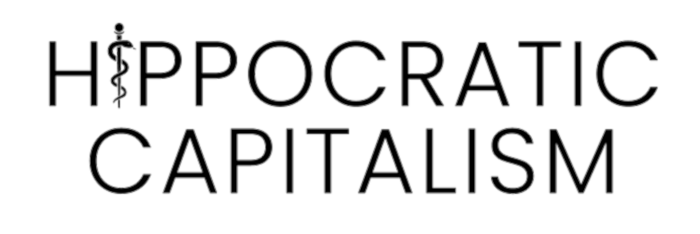Irish Dairies and Honesty Shops

This week’s newsletter was inspired by a LinkedIn post from Rob Chestnut. Chesnut is the former general counsel and chief ethics officer for AirBnB; he now writes and lectures about business ethics. His post described a visit to his Irish ancestral home, including a visit to an ‘Honesty Shop” at a dairy in Ballymoney operated by some distant cousins. To buy milk there you simply fill your bottle from the dispenser and leave your payment in the box. No sales clerk required. No security guard standing at the door. Not even a “virtual” sales clerk along the lines of Amazon’s hyper-surveillance grocery stores. Just you, the product, and a cash box. It’s the most efficient sales mechanism imaginable. What makes the system work is social accountability. Presumably, if people didn’t pay consistently, the family would have to either shut down the shop or else raise prices in order to cover the cost of a human sales clerk, neither of which would be an improvement from the customers’ perspective.
A law professor acquaintance of mine, who teaches at Middlesex University, explained to me recently that there are four fundamental ways to drive human behavior: Laws, social norms, economics, and architecture. These mechanisms differ in terms of their costs, tradeoffs, and effectiveness in different situations. Often, when one of four doesn’t work well in a particular setting, one or two of the others might be a better fit.
Consider the Millcreek Canyon teenage parties problem. I’m currently in Utah for the summer, writing this newsletter on the kitchen table of my house in the Salt Lake City foothills. A few hundred yards away lies the entrance to Millcreek canyon, a popular hiking, mountain biking, and picnicking area. A couple decades ago, the county and the National Forest Service were experiencing problems with teenagers using the canyon for parties and various illegal behaviors on summer nights. Now, consider some options for solving this problem:
- Social norms: Perhaps an educational campaign targeted at local residents, encouraging everyone to treat the canyon with respect. Unfortunately, though, young people who behave in antisocial behaviour are unlikely to be influenced by this sort of thing.
- Law: Another approach might have been aggressive police enforcement, but that’s expensive, and I suspect the local police had bigger priorities.
- Architecture: In theory they could have closed the canyon off to car traffic, but that would have prevented most of the recreational use.
- Economics: This turned out to be the sweet spot for this particular problem. The county and Forest Service began charging a small fee for each car entering the canyon. It was low enough to not seriously impact picnickers and mountain bikers, but just enough of a disincentive that local teenagers found other places for their parties.
In the case of preventing theft at the Chestnutt Dairy, social norms appear to be the sweet spot. Stationing police officers in the dairy, or filming violators on CCTV for the police to track down later, would have been overkill. A coin-operated milk dispenser (the obvious architectural solution) probably would be as well given the likely modest sales volumes. Plus, using social norms to encourage honestly sends a positive message to the customers, which may make them more likely to return. It feels good to be trusted.
So what does all this have to do with healthcare? One major unsolved problem is how to get hospitals to keep prices low and quality (access, convenience, customer satisfaction, and of course medical quality) high. For years the US has relied primarily on a combination of law and economics to attempt to drive these behaviors. Some things are legally regulated, e.g. emergency departments are required to evaluate anyone who comes in the door, but most things are left to the market. The theory is that employers and individuals will purchase insurance plans based on cost and quality, and that the insurance companies will in turn purchase medical services based on those same factors. But the problem is that both the regulatory and economic feedback loops are far too long and loose, allowing for all kinds of profiteering along the way. Medicine and healthcare are far too complex to reduce down to a set of simple rules that can be codified into law. Medicine requires a great deal of customisation to meet the needs of individuals, and it also requires a great deal of professional judgement. This complexity creates space for healthcare corporations to game the system.
So that’s why I believe that to make the healthcare industry function properly. we need to add in a strong dose of social norms. Call me Pollyanna, but I actually think this can work, at least for hospitals that are locally controlled. (Click here for my recent essay on why all physician practices and hospitals ought to be locally controlled, or here to listen to Kevin Pho’s interview with me on the same topic.) If you’re on the board of a community hospital, do you want your neighbors to know that you just approved an 8-figure pay package for the CEO, while the hospital is sending low-income patients to collection agencies?
Social norms could be particularly powerful within the healthcare industry, because social expectations for healthcare are higher than for many other other industries. People expect hospitals to prioritise patients’ welfare, and they get angry when a hospital that claims to be in the business of caring sends them a ridiculously high bill for a simple service. Doctors and nurses for their part are increasingly quitting due to moral injury from working in systems designed around profits, not relief of suffering. The anger and moral energy to demand change is already there. What's missing are the mechanisms to channel that energy to force corporations to prioritise patient welfare over profits. If we can restore local control of healthcare organizations, strengthening social bonds to both citizens and local government leaders, I believe we’ll see a reduction in corporate misbehavior.
